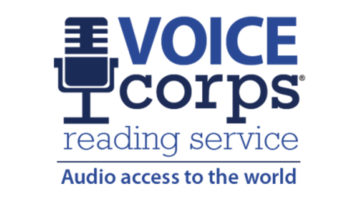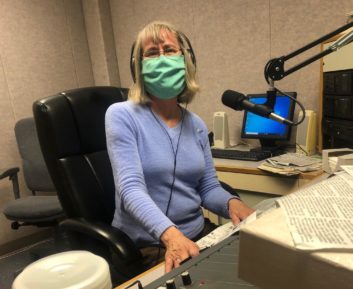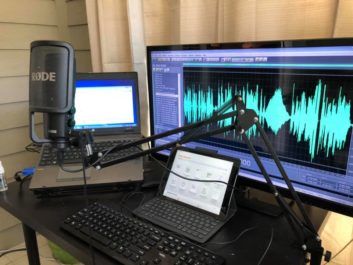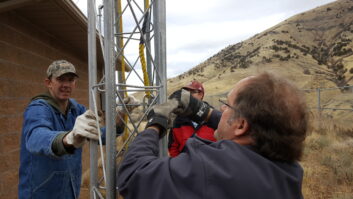 Voicecorps Reading Service is a central Ohio organization that helps people with low-vision or other disabilities stay informed through a team of about 200 volunteers who read aloud newspapers, shopping flyers and periodicals.
Voicecorps Reading Service is a central Ohio organization that helps people with low-vision or other disabilities stay informed through a team of about 200 volunteers who read aloud newspapers, shopping flyers and periodicals.
Radio World caught up with Voicecorps Marketing and Development Director David Noble to learn about how Voicecorps is adapting to provide its services during the COVID-19 pandemic.
Radio World: What is the mission of Voicecorps?
David Noble: Voicecorps enriches lives by reading printed news and information to people who are blind, have low vision, or other conditions that prevent reading.
RW: How can people access this content?
Noble: Eligible persons can hear Voicecorps on FM-SCA radios loaned to them by Voicecorps, on the SAP channel of WOSU-TV 32-2, on select cable systems, and as of March 12, in the northwest corner of Ohio as the virtual channel of WBGU-PBS 37-9 and on the SAP of 37-2, which takes us into homes via cable systems.
Others, who have accessible PCs or smartphones, tune-in by going to our webpage www.voicecorps.org and listening to the live stream or choosing one of our on-demand audio files. The live stream is also available using Alexa over the Amazon system.

RW: How has the COVID-19 pandemic affected your organization?
Noble: We are heavily dependent on volunteers to perform the reading of print news and current information. They were almost exclusively coming to our studios to read live or record weekly programs.
In Ohio, the stay-at-home order meant we had to pivot to at-home recordings and telephones for live broadcasts. Not all our volunteers were geared up for that, so it’s been a scramble to coach volunteers remotely into producing readings that are of sufficient audio quality to broadcast — and maintain a normal schedule.
At the moment, we’re not dispensing SCA radios. Instead, we advise new listeners to tune in via TV-SAP, use a PC or hear our web stream using Amazon Alexa, if they have one.
[Bumblebee Brings the Buzz of Live Radio to People With Sight Loss]

RW: Have your goals changed in light of the stay at home order in Ohio?
Noble: Only in that we no longer ask volunteers to come to us. We still maintain the goal of keeping the blind and visually impaired public just as up-to-date as their sighted peers.
RW: What technological challenges have you and your volunteers faced?
Noble: Setting up a recording studio at home has been a challenge, as has been ensuring that the volunteers at home have access to the print news they previously picked up in our studio at the time of their broadcast.
We have to say that the volunteers are amazing. They have thrown themselves at this problem with as much or more dedication than we see on a normal basis. We have not missed a daily newspaper reading yet!
RW: What devices and software have you used to facilitate remote reading?
Noble: The volunteer lets us know what they have available in their home. We do our best to make that work. If they have Apple systems, they can record using that. If they use PCs, they can use that. If they can’t do those, we see if reading live over the phone works for their schedule and ours.
We just sent out an email suggesting they download Audacity’s free recording software because the interface is fairly intuitive, and we won’t lose too much time on software support issues.
RW: What else should readers know?
Noble: The ability to keep up with current print news has always been important to living an independent life. Now, access to current information is vital to surviving the pandemic. The news on personal safety is especially important to have when your means of interacting with the world relies largely on tactile input. Providing audio versions of the newspaper and other print is truly a lifeline.







